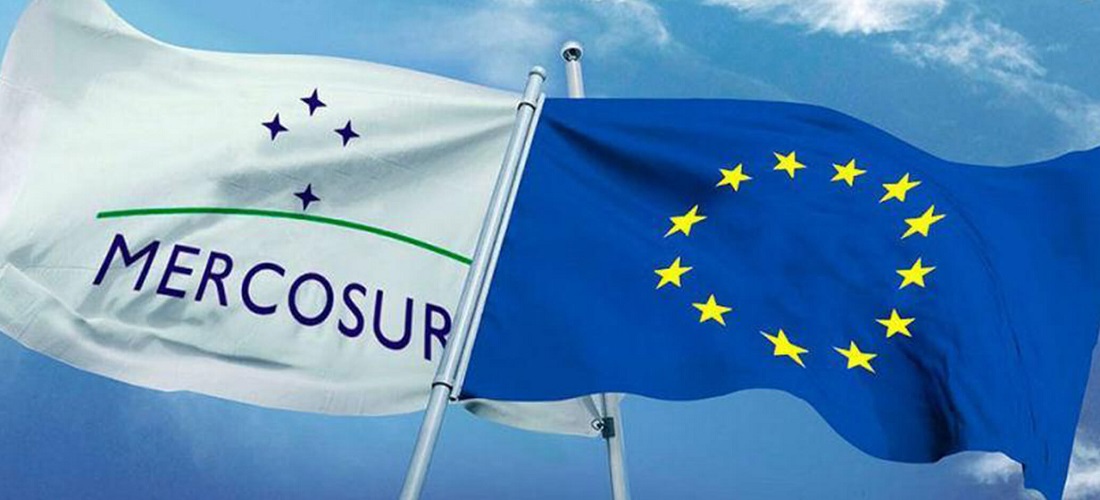
Mercosur is still trying to close a counterproposal for the EU
Aug, 07, 2023 Posted by Sylvia SchandertWeek 202333
European negotiators have signaled to Mercosur that they are willing to travel to Brasília later this month of August, to resume negotiations aimed at concluding the bi-regional trade agreement this year, according to reports from sectors of Mercosur.
The European position is not trivial, considering that it means interrupting the traditional European summer vacation period, which leaves almost everything at a standstill on the continent.
In the first half, the EU presented Mercosur with a ‘side letter’ with new demands to conclude the bi-regional agreement, with an emphasis on environmental commitments, to overcome opposition to negotiations in sectors in Europe.
Brazil, in particular, reacted harshly to the European document. After clashes within the Lula government, Brazil formulated a counterproposal that circulated to Mercosur partners in the first half of July. The next step is to consolidate a final document for the bloc to present to Europeans.
But, unsurprisingly, the internal negotiation phase within Mercosur has not been easy.
Last week, the bloc’s negotiators met in Brasília.
Argentina, which saw most of its concerns incorporated in the Brazilian counterproposal, appeared prepared and presented a series of very detailed additional comments.
Paraguay was more generic, because the dynamics in Asunción are complicated, with a new government that takes office on the 15th. Even so, Paraguayans demonstrate willingness to advance in the consolidation of the counterproposal for the Europeans.
Uruguay, on the other hand, which insists on the speech that it wants to close the agreement with the EU, keeps pushing the discussions and can never react in time, as claimed by sectors of the bloc.
Uruguayans actually say that Brazil and Argentina are severely limiting the offer in the area of government procurement for Europeans. At the same time, they hear that Montevideo takes a more liberal position that plays with the interests of Brazilian and Argentine industries, because it has little or nothing to lose in certain areas of the negotiation.
The perception in sectors of Mercosur is that Uruguay ‘creates confusion’. And who, for domestic political reasons, likes to complain about Brazil and Argentina. Last week, Uruguayan Chancellor Francisco Bustillo said in Parliament that Mercosur negotiations in general “have been blocked” because of Brazil’s internal affairs.
In early July, President Luis Lacalle Pou did not sign the final document of the Mercosur leaders’ meeting. The text mentioned difficulties that the legislators of European countries would be creating for the agreement between the southern cone bloc and the EU.
It was agreed in Brasilia a period of a few more days for the partners to make their comments on the counterproposal, in order to try to consolidate the bloc’s position.
However, while Brazil puts its foot on the accelerator, a ‘plan B’ for an upcoming meeting with the Europeans has already entered the radar – that is, a meeting in August looks very difficult.
There is no doubt that Mercosur will take the next steps towards the final counter-proposal to the Europeans. The question is of rhythm. Certain sources in Mercosur note that it is easy to be skeptical and bet that the negotiation will fail again. They insist, however, that the situation is different now and final bargaining could take place in September and October, for the signing of the agreement by December.
The assessment in sectors of the bloc is that it will be very difficult for the EU to ‘beat’ the counter-proposal it will receive. According to one source, it includes everything the Europeans want, with the exception of an open gate for trade sanctions, for example.
As for the review of the Brazilian offer of public purchases, Brasília has argued with what happens in the world. That is, with the covid-19 pandemic and the war in Ukraine, and given that both Europe and the United States are incorporating a new industrial policy and the search for strategic autonomy, including enormous subsidies for the green transition, Brazil can say that it also wants to have space for policies in that direction.
It is not just the green transition, but the change in the post-pandemic international scenario and the feeling that industrialized countries are moving towards unilateral legislation, making their decisions, and partners cannot just sit back and watch this.
Source: Valor Econômico
To read the full original report, visit: https://valor.globo.com/opiniao/assis-moreira/coluna/mercosul-ainda-tenta-fechar-contraproposta-
-
Grains
Sep, 01, 2021
0
Soybeans: Brazil ships up to 5.79 million tons in August
-
Other Logistics
Jan, 17, 2022
0
Suez Canal expansion to be completed by July next year
-
Ports and Terminals
Apr, 29, 2022
0
Codesa has a new president
-
Ports and Terminals
Jan, 03, 2023
0
Paraná state expects BRL 1.2 mln for two port areas in Paranagua


